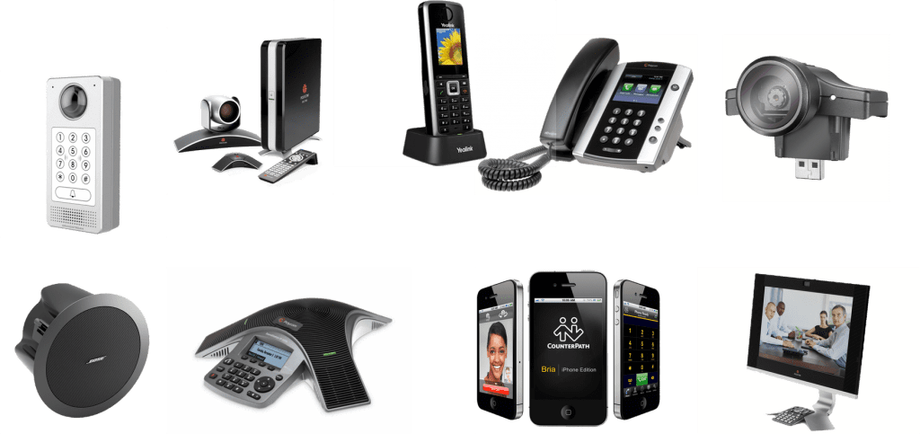Introduction
When it comes to a phone system for your business, one size does not suit all. Distinguishing between a Hosted PBX and a Cloud PBX might be tricky! Both are marketing terms for a PBX accessible remotely via an IP network. Switching to an IP-PBX system is unquestionably advantageous. Let me try to clarify the ambiguity in terms and answer if they are the same.
What basically is a PBX?
A PBX (Private Branch Exchange) is a means of allowing a company's telephone system to have one external number attached to one or group of outer lines. The PBX provides switching of calls between internal and external lines. Outbound calls may be originated and transferred within the company without each phone user needing their dedicated outside line. Internal lines are typically called "extensions". They are designated to each company user with the assigned three or four-digit phone number.
What are Hosted PBX and Cloud PBX?
Most users will tell you that they are the same. I tend to agree with that, but not everyone does.
Some telecomsters think that Hosted PBX implies a service provided by a provider that hosts dedicated servers that run users' PBX services in a distant location. Users typically access the service over the network. Every hosted PBX small business supports call switching and many other phone features; however, the actual PBX server is located outside the user's premises.
The same people tend to think that cloud-based services, notably cloud PBX, differ from this. A cloud phone system for small businesses, in their opinion, refers to a partitioned phone service hosted by a service provider. It can have all the same features of the hosted PBX except that it isn't a dedicated system. For example, this may be a large phone switch that is partitioned into multiple systems. Yes, this sounds almost the same as hosted PBX. However, the two are not the same.
Are There Different Kinds of PBX Systems?
Yes! There are all sorts and flavors. PBX phone systems can be dedicated or partitioned, hosted, or premises-based. Internet phone service for business comes under all kinds of marketing names: cloud, hosted, Unified Communications, etc. In the end, however, your small business will not likely immerse itself in its telephone service's nuts and bolts.
Here are some of the features of a Hosted PBX system
- All the hardware-based solutions are operated off-premises. A PBX provider, often known as a host, manages all of the essential servers in a remote location. The supplier controls all the hardware, so you don't need to buy anything.
- A network connection is used to reach the PBX server(s). In other words, the service is delivered over the Internet.
- Hosted PBX could offer greater data sovereignty and better price per feature for companies with 50 or more users.
Features of Cloud PBX
- The supplier operates a cluster of servers stored in a cloud, as with the hosted PBX.
- The service is also accessed over the Internet.
- A portion of the hosted cluster offers a phone service that can be dynamically scaled up or down. The service is delivered as a SAAS (Software as a Service) model.
- Demand spikes might influence service. Because it is difficult to foresee and manage unexpected demand, excessive demand might impact other network users.
- Storage space might be restricted depending on the number of users, calls, recorded minutes, etc.
- It is often pay-per-use. Instead of paying by the number of users, cloud-based PBX is typically invoiced by the amount of data sent.
Conclusion
Both hosted PBX and cloud PBX are high-quality options that work similarly. The differences eventually come down to usability, cost, and interconnection; hence, users must identify their intended purposes before picking a service. While each solution has distinct advantages, hosted PBX is more dependable; nonetheless, both are ultimately better suited for specific purposes.
For more info:-





Alphonsus Odumu 6 w
Taken